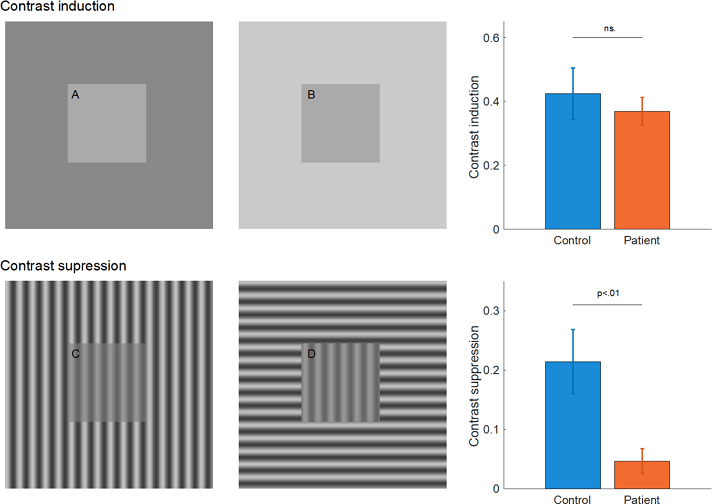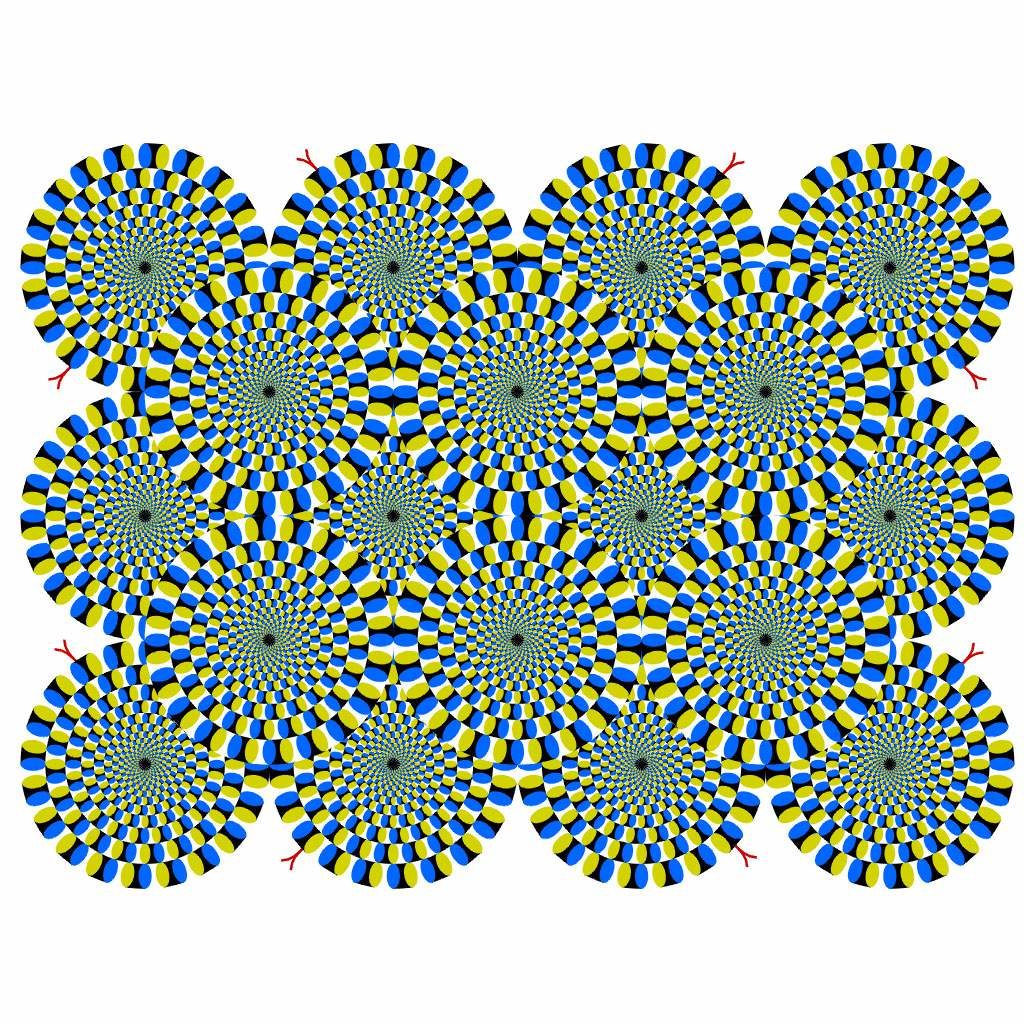Posts Tagged ‘visual-perception’
Study: Depression affects visual perception … making it more accurate
Depression affects visual perception (press release by University of Helsinki): Researchers specialised in psychiatry and psychology at the University of Helsinki investigated the effects of depression on visual perception. The study confirmed that the processing of visual information is altered in depressed people, a phenomenon most likely linked with the processing of information in the…
Read MoreIf you’re a fruit fly, tease your mind with this optical illusion. Humans welcome too.
Please move your gaze around the image, resting from time to time. Then, fix your gaze at a point, and see what happens. You will probably first see ‘snakes’ rotating, some clockwise, others anticlockwise, and then stop.
Read MoreVisual Illusions in Art and Science
The following is an excerpt from “Sleights of Minds: What the Neuroscience of Magic Reveals about Our Everyday Deceptions.” by Stephen L. Macknik and Susana Martinez-Conde with Sandra Blakeslee, published by Henry Holt and Co., LLC © 2010 by Stephen L. Macknik and Susana Martinez-Conde. Visual illusions are fascinating. They have both been used by…
Read More


